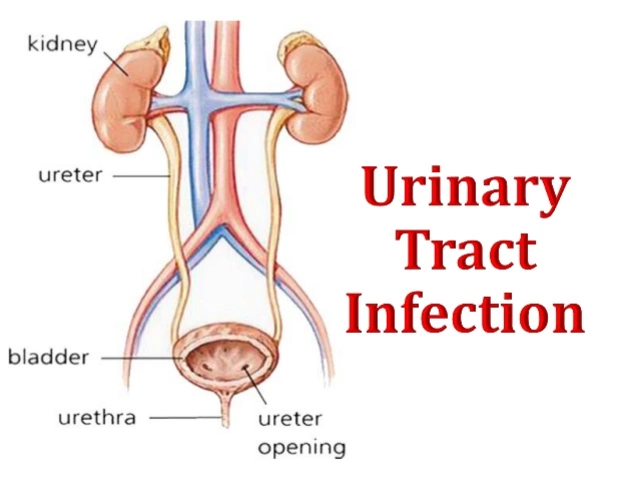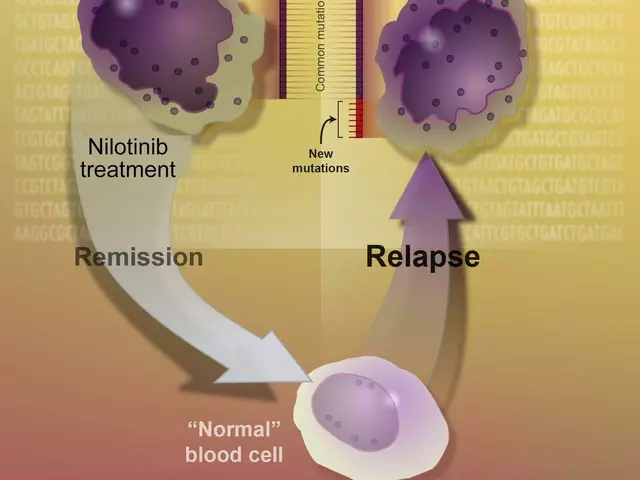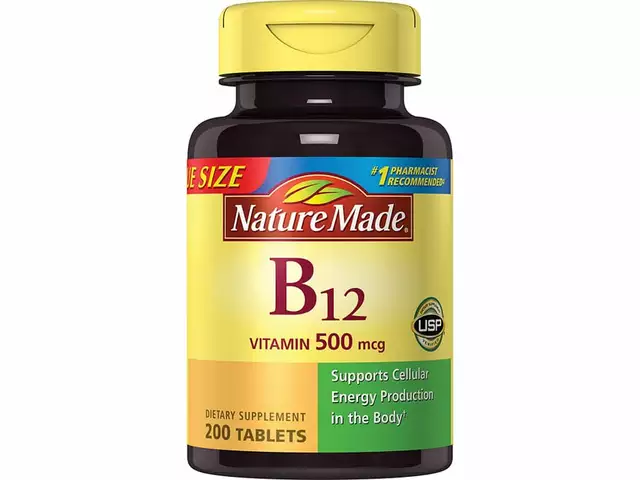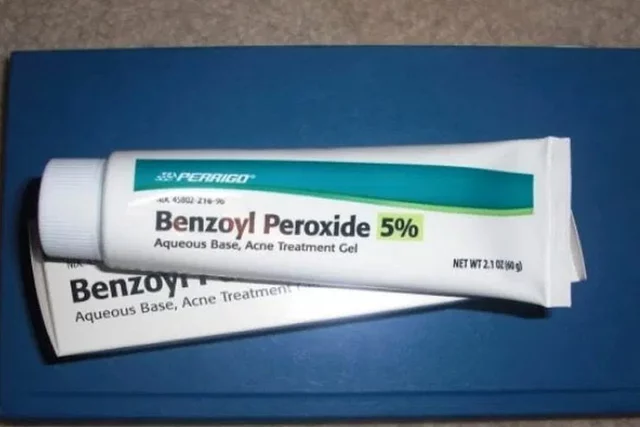
Heartburn and Hiatal Hernia: The Connection You Need to Know
Heartburn — it's that burning sensation in your chest that no one really loves to talk about. But did you know that sometimes, heartburn is more than just a reaction to your late-night pizza? If you've been experiencing heartburn on the regular, there's a chance it might be connected to a sneaky little thing called a hiatal hernia.
So, what's the deal with a hiatal hernia? It's when part of your stomach decides to push up through your diaphragm muscle into your chest. Sounds a bit odd, right? But in some cases, it can lead to the stomach acid making a swift and uncomfortable comeback into the esophagus, causing that dreaded heartburn.
Living with this type of heartburn can be a pain — quite literally — but understanding the connection with a hiatal hernia can be the first step towards getting things under control. Stick around as we explore what it all means, and more importantly, what you can do about it.
- Understanding Heartburn
- What is a Hiatal Hernia?
- How They Are Connected
- Common Symptoms
- Managing and Preventing Heartburn
- When to See a Doctor
Understanding Heartburn
If you've ever felt a burning feeling in your chest or that pesky sour taste at the back of your throat, you're already familiar with heartburn. It's more common than you might think. Roughly 60 million Americans experience heartburn at least once a month. And let's face it, it's super annoying.
Heartburn pops up when the acidic contents in your stomach decide to take a stroll up your esophagus, which is the tube connecting your throat to your stomach. It's not supposed to happen, but sometimes, the lower esophageal sphincter (LES) — think of it as a gatekeeper between your stomach and esophagus — doesn't close all the way, and that's when acid can escape.
Common Triggers
So, what causes this unwelcome guest? A lot of it boils down to diet and lifestyle. Greasy foods, spicy snacks, and even the occasional chocolate bar can send your stomach acid levels into overdrive. Stress and alcohol might also make things worse, so it's no wonder heartburn flares up during the holidays or after a big meal.
Why It Matters
Ignoring heartburn isn't just uncomfortable; it can lead to more serious problems down the road. Frequent heartburn may be a sign of gastroesophageal reflux disease (GERD), which needs proper medical attention. If it's paired with other symptoms like difficulty swallowing, it's something you definitely shouldn't ignore.
Understanding the basics of acid reflux and what brings it on is crucial. The good news? With a few lifestyle tweaks, you can often get a handle on it before it rules your life. We'll dive more into these changes in the sections to come, so stay tuned.
What is a Hiatal Hernia?
A hiatal hernia might sound complex, but it's actually pretty straightforward. Picture this: your stomach, which is supposed to hang out below your diaphragm (the muscle that helps you breathe), decides to sneak up into your chest area. That's all it is—a bit of your stomach muscle pushing through a small opening called the hiatus, trusted for its usual job of letting the esophagus through to connect with the stomach.
There are two main types of hiatal hernias—sliding and paraesophageal. The sliding type is most common and occurs when the stomach and the lower part of the esophagus move up into the chest. The paraesophageal hernia is less common but more concerning since it can cause part of the stomach to get stuck in the chest, potentially cutting off its blood supply.
Why Does It Matter?
You might be wondering how a little extra stomach movement can cause such a fuss. Well, that extra pressure and the misplacement can make it easier for acid to move back up into your esophagus, leading to pesky conditions like acid reflux and heartburn.
While anyone can get a hiatal hernia, a few factors make it more likely. Being overweight, over the age of 50, or having consistent tension and pressure on the abdomen—think heavy lifting or intense coughing—can increase your chances. Pregnancy is also a common time for these hernias to emerge, thanks to the extra pressure on the abdomen.
Quick Stats
| Type | Occurrence |
|---|---|
| Sliding Hiatal Hernia | ~95% of cases |
| Paraesophageal Hiatal Hernia | ~5% of cases |
Knowing whether you have a hiatal hernia can be tricky since mild cases often go unnoticed without any symptoms. However, when symptoms do pop up, they're hard to ignore, with heartburn, difficulty swallowing, and even a feeling like food is getting stuck. Diagnosing it usually involves a barium X-ray or endoscopy, methods we'll dive into later.
How They Are Connected
To get why heartburn and a hiatal hernia are linked, it's crucial to know what's happening inside. A hiatal hernia occurs when the upper part of your stomach pokes through the diaphragm into the chest. This diaphragm is like a separator between your chest and abdomen, and it supports keeping stomach acid where it belongs.
But when there's a hernia, it's like opening a sneaky path for that acid to escape into your esophagus. The result? Uncomfortable acid reflux or heartburn. This happens because the lower esophageal sphincter (LES), which is supposed to keep acid from coming back up, loses its efficiency when pushed around by a hiatal hernia.
What's Going on Inside?
Here's a simple breakdown of what might be happening:
- Pressure changes: When the diaphragm can't function properly, pressure changes make it easier for stomach contents to escape.
- LES malfunction: The LES becomes less effective, letting acid more freely trickle up.
Folks dealing with a hiatal hernia often experience more than just acid reflux. Issues like regurgitation and even chest pain can pop up, and it's all due to this anatomical change.
| Issue | Common Symptoms |
|---|---|
| Hiatal Hernia | Acid reflux, chest pain, regurgitation |
| Heartburn | Burning sensation in chest, sour taste |
Now that you're clued in on the link, managing the symptoms might be next on your list. Whether you're coping with lifestyle changes or seeking medical advice, knowing how they interrelate is half the battle won.

Common Symptoms
If you've ever felt that burning feeling right in the chest after a meal, you're not alone. Heartburn is one of the classic signs, especially when it's linked to a hiatal hernia. But what's actually going on inside your body?
Heartburn
Heartburn is the biggie here. It's that fiery sensation that starts in the upper abdomen and can work its way up to your throat. Usually, it's a clear sign that the stomach acid is doing a number on your esophagus.
Regurgitation
Another common symptom is regurgitation. This is when small amounts of acid or food come back up into your mouth. It's not a pleasant experience, but it happens when that acid takes a little round trip.
Bloating and Burping
Feeling a bit puffed up? Bloating happens when your stomach is having a hard time with digestion. Add some burping, and it's a sure sign that your digestive system is sending you some signals.
Nausea
Nausea is less common but can happen, especially after eating. It's like your stomach's way of protesting the discomfort it's feeling.
- Chest pain: Don't ignore it – especially if it feels tight or spreads to your arm. Heartburn-related chest pain is usually more intense after meals or when lying down.
- Coughing or hoarseness: This can happen when the acid irritates your throat. If you're coughing without other cold symptoms, acid reflux might be suspect.
- Difficulty swallowing: Known as dysphagia, when your throat feels tight or it's tough to get stuff down, it's something to consider.
Keep in mind, these symptoms can differ for everyone, and they might come and go. If you notice them sticking around or getting worse, it might be worth having a chat with your doctor. Remember, managing these symptoms early on could make a world of difference to your overall digestive health.
Managing and Preventing Heartburn
Dealing with heartburn isn't fun, especially when it's linked to a hiatal hernia. But don't worry, there are plenty of ways to manage and even prevent those uncomfortable flare-ups.
Watch Your Diet
The first thing to look at is what you're eating. Certain foods are known culprits when it comes to acid reflux. We're talking spicy foods, chocolate, caffeine, and alcohol. Try keeping a food diary to pinpoint what sets off your symptoms.
- Avoid late-night snacks. Eating an hour or two before bed can make things worse.
- Go for smaller meals. Stuffing yourself overloads your stomach.
- Consider foods that are easy on your tummy, like bananas, oatmeal, and lean proteins.
Change Lifestyle Habits
Small tweaks in your daily routine can have a big impact. Here’s what you can try:
- Elevate your head when you sleep. Gravity helps keep acid down.
- Wear looser clothing so you’re not putting extra pressure on your abdomen.
- Quit smoking. It can weaken the valve between your stomach and esophagus.
Give OTC Medications a Go
There are over-the-counter medications that might provide relief:
- Antacids can neutralize stomach acid fast.
- H2 blockers reduce acid production and are longer-lasting.
- Proton pump inhibitors (PPIs) are also available and can be used for more severe cases.
Remember, it's always a good idea to check with a doctor before starting any new medication.
With some savvy choices, you can take the sting out of heartburn and keep it from crashing your plans. Whether it's adjusting your diet, changing up your lifestyle, or popping a handy OTC pill, you have options at your disposal.
When to See a Doctor
Living with heartburn and a hiatal hernia can be a real drag, but when should you throw in the towel and call up your doc? While occasional heartburn after a spicy meal can be normal, there are some red flags that mean it's time to get a professional involved.
Persistent Symptoms
If you're popping antacids more often than you'd like to admit and the relief is only temporary, it might be more than just the jalapeños. Heartburn that doesn't ease up or keeps coming back can signal that your acid reflux situation needs more than just a dietary tweak.
Trouble Swallowing
Feeling like your food is getting stuck on the way down? This could be a sign that something more serious is at play, possibly due to complications from GERD (Gastroesophageal Reflux Disease). Either way, it's a good idea to get that checked out.
Unexpected Weight Loss
Slimming down without really trying could be a cause for concern. If you're dropping pounds without hitting the gym or changing your eating habits, that could be your body's signal that something's up.
Chest Pain
Heartburn-related chest pain can sometimes mimic heart attack symptoms. If your chest pain is severe or accompanied by other symptoms like shortness of breath, it's time to seek medical attention, stat.
Key Symptoms to Watch
- Persistent heartburn despite lifestyle changes
- Difficulty swallowing or a sensation of a lump in the throat
- Uncontrolled hiccups
- Nausea or vomiting
- Unexplained weight loss
In any of these cases, a visit to the doctor can help figure out what's going on. They might suggest tests like an endoscopy or pH monitoring to gauge how much acid's causing trouble.
Getting on top of your digestive health can make a world of difference. And remember, it's always better to be safe and check in with your healthcare provider rather than just toughing it out.





Written by Jakob Fitzroy
My name is Jakob Fitzroy, and I am an expert in pharmaceuticals with a passion for writing. I have dedicated my life to studying medication and understanding how it affects various diseases. My goal is to educate people about the importance of proper drug therapy and prevention methods. I have authored numerous articles, providing valuable insights on medication, its development, and its impact on patients. My driving force is to contribute to the ongoing fight against diseases and improve the overall health and well-being of people around the world.
All posts: Jakob Fitzroy